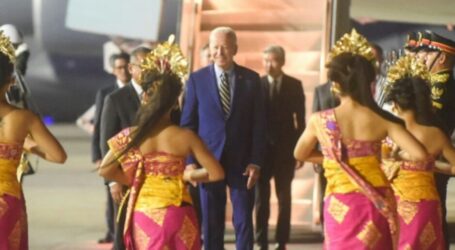TUNISIAN OPPOSITION HOPE TO COPY EGYPT ISLAMIST OUSTER
 Tunis, 6 Ramadhan 1434/13 July 2013 (MINA) – Secular opponents of Tunisia’s Islamist-led government are hoping to emulate their counterparts in Egypt, who have acclaimed an army coup against elected President Mohamed Morsi.
Tunis, 6 Ramadhan 1434/13 July 2013 (MINA) – Secular opponents of Tunisia’s Islamist-led government are hoping to emulate their counterparts in Egypt, who have acclaimed an army coup against elected President Mohamed Morsi.
In 2011, Tunisians set the pace, rising up against their veteran leader and inspiring Egyptians to turf out their own, in popular revolts that touched off others across the Arab world, IOL News quoted by Mi’raj News Agency (MINA) as reporting, Saturday.
Now Morsi’s July 3 overthrow has energised Tunisian secular opposition groups who see a chance to topple their own freely elected Islamist-led government – but Tunisia’s army has shown no sign it is ready to intervene as the Egyptian military did.
Young Tunisian activists have launched their version of Egypt’s Tamarud protest movement, saying they have collected 200,000 signatures for a petition against Ennahda, a moderate Islamist party similar to Egypt’s Muslim Brotherhood.
They have called for mass protest rallies on July 25, Tunisia’s national day, demanding a caretaker government that would curb the Islamists and fix the faltering economy.
One day after Morsi’s ouster, Nida Touns, the main secular opposition, congratulated Egyptians on their “victory” and called for a national salvation government in Tunisia.
Its leader, Beji Caid Essebsi, a former prime minister, accused Islamists of seeking to control all aspects of the state and criticising their economic and political management.
Nida Touns and several other opposition parties met on Tuesday to try to forge a common front.
Political analyst Youssef Ouaslati said that if the opposition unites and big crowds turn out on July 25, the government, which includes two secular parties, does not appear to be in imminent danger of collapse, given the reticence of Tunisia’s military to meddle in politics.
In Tunisia, as in Egypt, the army refused to suppress the mostly peaceful demonstrations that ended President Zine al-Abidine Ben Ali’s secular 23-year rule in January 2011.
But the Tunisian army stayed out of a political transition that involved elections won by Ennahda, which then shared power with some of its secular rivals. The army chief stepped down last month and his replacement was sworn in this week.
By contrast, Egypt’s powerful military, which has supplied all the modern republic’s presidents, took over from Mubarak, only turning over power a year ago when the Muslim Brotherhood’s Morsi became the country’s first freely elected leader.
Tunisia’s secular president, Moncef Marzouki, condemned Morsi’s overthrow, angering the interim authorities in Cairo.
The coalition government has already survived a major test this year when the Feb. 6 assassination of opposition leader Chokri Belaid sparked the worst unrest since Ben Ali’s fall.
Ennahda eventually defused popular anger by forming a new government that included a large number of independents.
The Islamist party’s founder, Rachid Ghannouchi, spent 22 years in exile in Britain where he said he saw how different religions could operate in a pluralist political system.
His counterparts in Egypt, where the Muslim Brotherhood was founded in 1928, were suppressed and often jailed under Mubarak.
Nevertheless, despite Ennahda’s relative pragmatism and moderation, it has a tough task in governing a divided country where social tensions and economic hardship have grown – as have hardline Salafi Islamist groups feared by the opposition.
Political analyst Sofian Ben Farhat said the Muslim Brotherhood’s defeat in Egypt would reverberate elsewhere.
“This is the fall of political Islam in Arab Spring countries after a catastrophic failure. Tunisia may be next,” he said.
French President Francois Hollande, visiting Tunis a week ago, said his hosts were “heading in the right direction”, drawing a positive contrast with Libya, Egypt and Syria.
“In Libya the transition has been tainted by violence; in Egypt the transition was stopped after the removal of the elected president; and in Syria, desire for change led to war,” Hollande said. (T/P09/E1).
Mi’raj News Agency (MINA).




